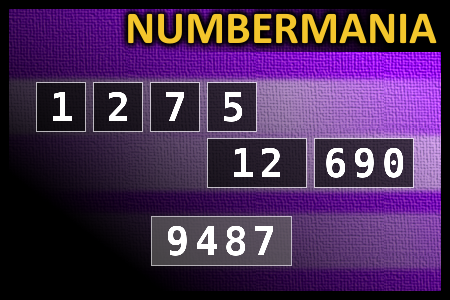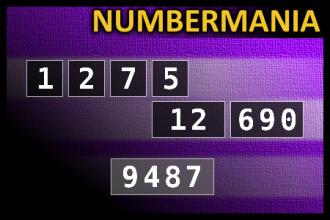Calculate the number 9487
NUMBERMANIA: Calculate the number 9487 using numbers [1, 2, 7, 5, 12, 690] and basic arithmetic operations (+, -, *, /). Each of the numbers can be used only once.Correct answers: 27
The first user who solved this task is Sanja Šabović.
#brainteasers #math #numbermania

